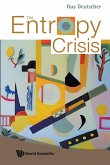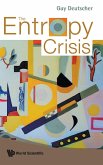The physical sciences and mathematics are extraordinarily useful in explaining the material world. People and society are constrained by physical reality, but we are often unclear on what constraints are absolute, which may be relative, and those that are simply a matter of taste. Bandwidth explains how limitations in the movement and perception of information constrain human behavior, cognition, interaction, and perspective. How fast can we learn? How much? Why are habits and biases unavoidable? Why is the common statement "any nation that can land people on the moon surely can ..." frequently wrong? Using equations and physical models, Bandwidth describes constraints which, in part, explain political, economic, religious, and personal frictions. Aspects considered include: how much information can one human absorb in a lifetime? How far does a process of perturbation propagate? How do specialization or generalization, critical thinking or belief, influence what people accomplish? Throughout, equations are used to compactly express ideas, illustrating why mathematical economy of expression accelerates communication and deeper understanding. The critical impacts of uncertainty, fluctuations, or noise, and their implications for law and society, are emphasized.
Hinweis: Dieser Artikel kann nur an eine deutsche Lieferadresse ausgeliefert werden.
Hinweis: Dieser Artikel kann nur an eine deutsche Lieferadresse ausgeliefert werden.








